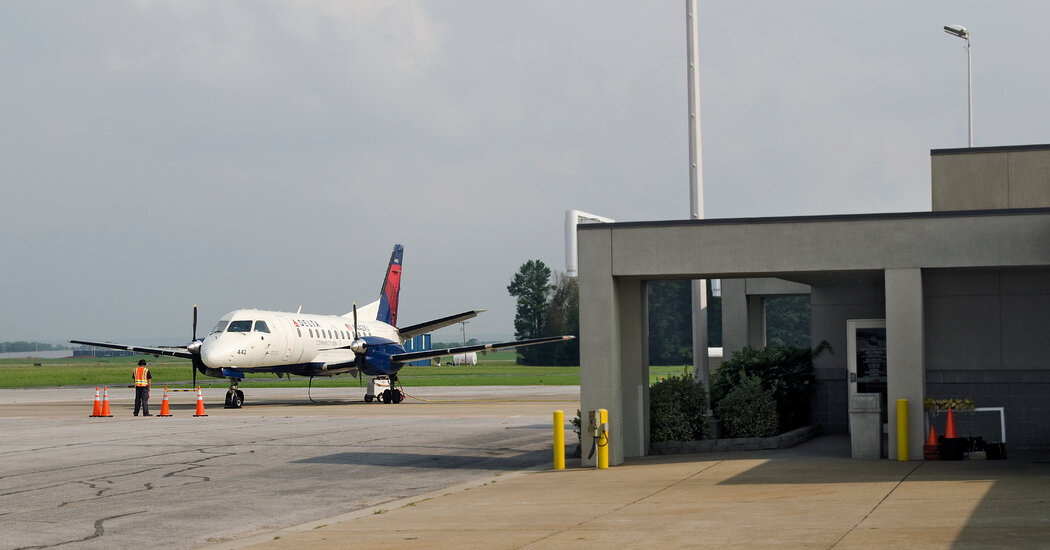A federal program to subsidize air travel to rural areas will run out of funding by Sunday unless the government shutdown ends, the transportation secretary, Sean Duffy, said Monday, predicting other interruptions to air service if the standoff wears on.
The loss of funding for the Essential Air Service, which pays subsidies to commercial airlines to maintain flights at smaller airports that might otherwise lose service, is poised to become the first aviation-related effect passengers feel as a result of the shutdown that began Wednesday.
“There’s many small communities across the country that will now no longer have the resources to make sure they have air service in their communities,” Mr. Duffy told reporters, noting that “every state across the country will be impacted” if the program’s coffers run dry. About 175 communities are eligible for the service, including 65 in Alaska.
But while the service has outsized importance in heavily rural areas, Mr. Duffy’s other warnings signaled the potential for broader problems.
Transportation Department officials are tracking a “slight tick-up” in air traffic controllers calling in sick, Mr. Duffy said, noting that he was concerned that the shutdown was complicating controllers’ ability to focus on their already stressful jobs. Controllers are required to work through the shutdown without pay, like some other federal workers. Even though nearly all will receive back pay after it ends, extended shutdowns in the past have forced federal workers to seek loans or take other steps to secure their finances.
Widespread delays at airports brought about a swift end to the last shutdown, in 2019. Back then, air traffic controllers began calling in sick at a few important sites, and the increased pressure on Congress and President Trump helped them reach a deal to reopen the government on the 35th day.
Mr. Duffy lamented on Monday that the already stressful job of being an air traffic controller in the midst of a national shortage was being compounded by the shutdown.
“Now what they’re thinking about as they’re controlling our airspace is, how am I going to pay my mortgage, how am I going to make my car payment,” Mr. Duffy said.
Officials in charge of the air traffic controllers’ union have also voiced concerns that the shutdown is putting undue strain on controllers. On Sunday, they released a video warning controllers against organizing any sort of walkout, and stating that “such actions are illegal” and “risk your careers.”
Mr. Duffy said Monday that the situation had not yet reached a critical point, and the airspace was still safe. But if there are more sick calls, he said, the agency would reduce the flow of air traffic to a rate that is safe.
“If we think there’s issues in the airspace, we will shut it down,” he said. “We will close it down, we will delay.”
Karoun Demirjian is a breaking news reporter for The Times.
The post Commercial Aviation May Soon Feel Shutdown’s Impact, Official Warns appeared first on New York Times.




